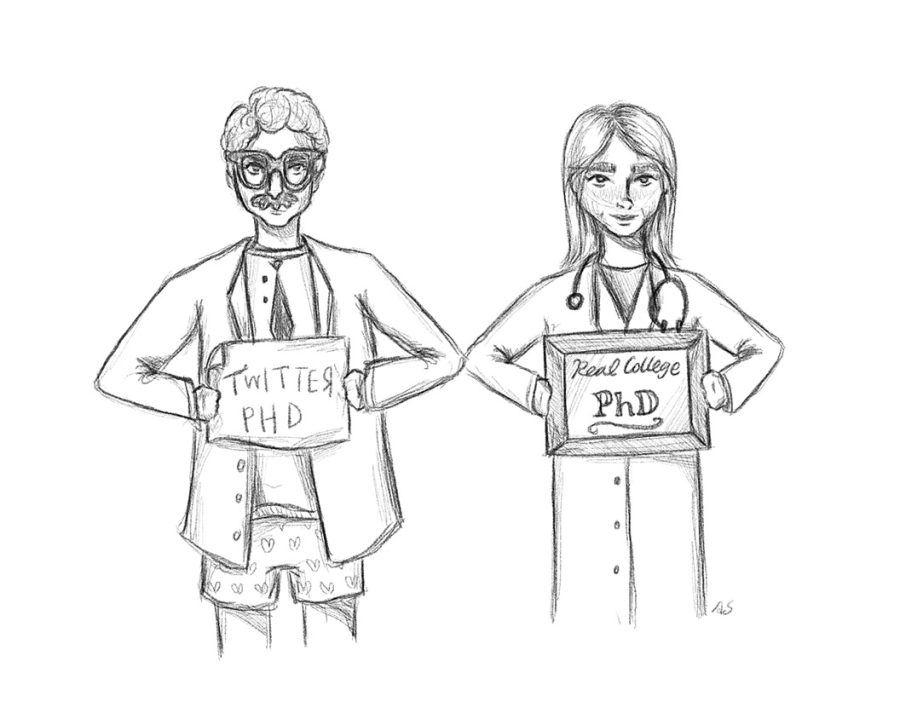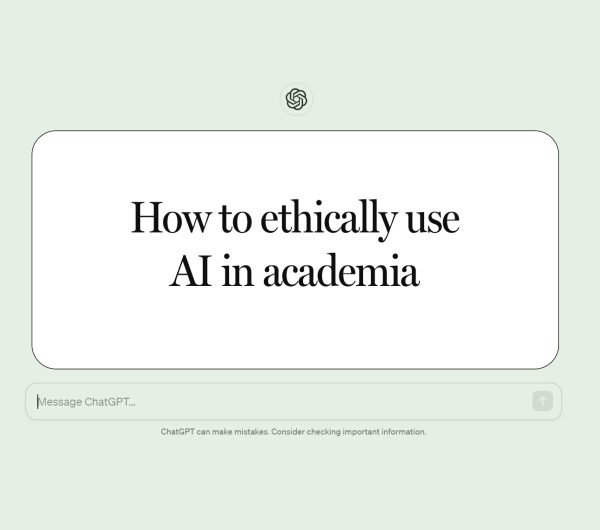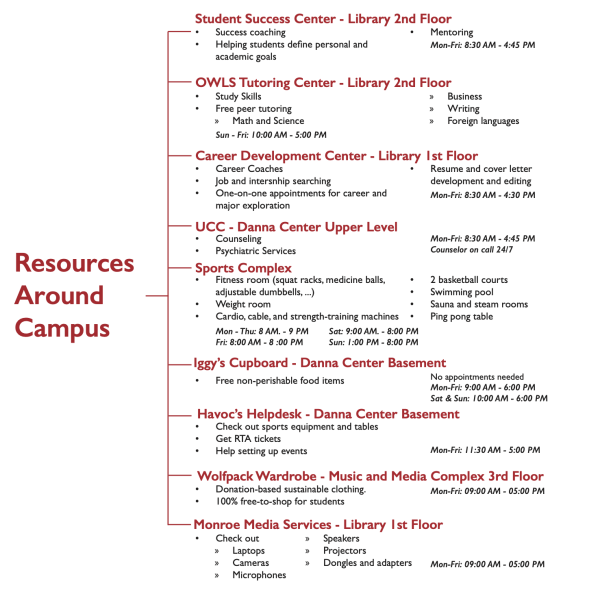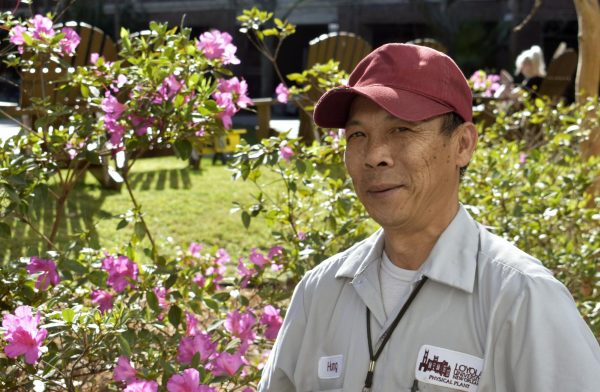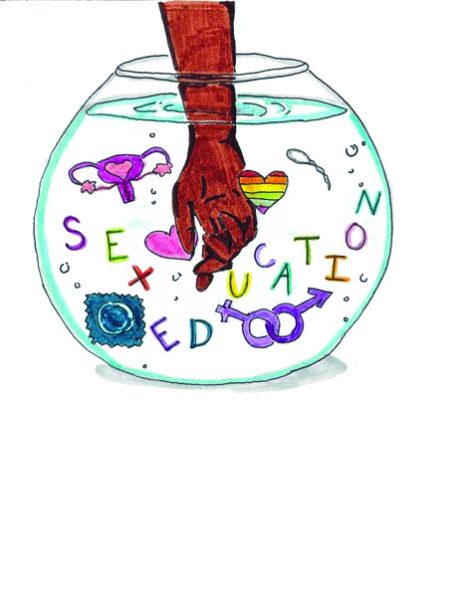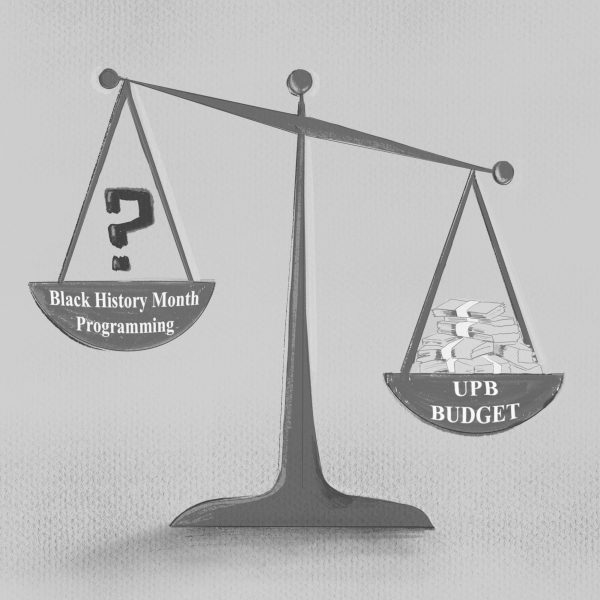EDITORIAL: Education is the cure to fake news
March 10, 2023
Media literacy is critical, especially now, as false information spreads like wildfire over digital platforms. It’s easier now, more than at any other time in history, to access information, get live coverage of events, and stay informed about current issues.
However, the faster we’ve been able to access information, the harder it has become to fact-check and dispose of false information that travels alongside it.
Social media can be a powerful weapon for those who want to sow division and fuel chaos by spreading fake news. Maintaining division where facts cannot be agreed upon only helps reinforce false narratives and amplifies them in these insulated media echo chambers.
But it’s not impossible to see through fabricated ideas – most of these false narratives begin by finding their desired conclusion and work backward to create a false impression of information. It’s important not to buy into sweeping claims and partisan conclusions but use common sense to understand where that “fact” or “argument” came from. What facts and logical arguments support it? We can’t just pluck off the leaves, we need to hit the roots.
Beneath the surface of vast media echo chambers is a dangerous, but defeatable, effort to attack facts, logic, and reason.
We need to share common facts and promote critical thinking and media literacy. Once we no longer have a factual common ground, we can no longer engage in democratic debate.
It’s no secret that our inability to communicate with each other has been harmed by partisan media and specifically partisan right-wing media, which bears the ultimate responsibility for its divorce from reality. They have taken people who trusted them in good faith and led them into this mass hysteria about a reality of the world that does not exist. From soup to nuts, from false claims about open borders, rigged elections, and COVID-19 vaccines to vile claims of predatory behavior from minority groups.
The result of disinformation, or “alternative facts,” as the last administration had so cleverly coined, is creating a more dangerous world. People are feeling threatened. They’re lashing out because they’ve become paranoid and believe that these phony culture wars are going to kill them if they don’t act first.
As the media becomes more rapidly weaponized by partisans, the role experts play in protecting our personal interests cannot be understated.
While disinformation runs rampant online, right-wing media has been swamped with conspiracy-driven content that disposes of the facts upon reporting the story. A common thread that unites the right-wing media ecosystem, from Alex Jones and One America News on the fringe to Fox in the mainstream, is a constant firehose of disinformation. We must be able to find reliable sources and experts and give them far more trust than we do television pundits – even if experts can still be wrong.
Anti-intellectualism is festering in American politics, most recently displayed by the manufactured outrage directed toward Dr. Anthony Fauci, who oversaw our COVID-19 vaccination efforts. As many vile conspiracies were hurled at him on fringe media channels, big broadcast companies like Fox News suggested Fauci was to blame for the virus and had a stake in the vaccine – even provoking people to stay away from taking the vaccine out of potential danger to human life. All the while, the network anchors knew they were lying (and took the vaccine themselves).
Likewise, if all the data shows that the 2020 election was not stolen, if every single independent investigation concludes there was no widespread fraud, and television broadcasters continue to contradict expert-verified evidence, we should be skeptical of that broadcast. And when those same anchors admit the conspiracy theories they’re peddling are lunacy, it should no longer be considered news.
It’s important for news media to maintain a reputation of sincerity, a willingness to correct mistakes, and to carefully check the facts. It takes decades to build a reputation, but only hours to destroy one.
The danger that follows a lack of media literacy has been on display across America for the last several decades. When Fox News broadcasters promote extremist ideologies as mainstream talking points, they bear responsibility for the consequences that come with that.
It is astounding and necessary to address the fact every single extremist-related murder committed in 2022 was committed by a right-wing extremist. Engaging with this false belief that both parties are equally divergent from the “political center” is enabling the right-wing media to spiral into psychosis. We cannot gaslight ourselves.
Right-wing extremist ideologies that were promoted by major broadcast companies fueled the execution of nine Black churchgoers in Charleston, South Carolina in 2015, the 11 Jewish worshippers that were killed in Pittsburg in 2018, and the 23 Latinos that were killed in a Walmart in 2020 and 2021.
The Buffalo Topps grocery store shooter believed that there was a conspiracy to replace whites with non-white people. He bought into fabricated statistics from his 4Chan group chats that said Black people were an existential threat to white people.
The same great replacement theory was pushed by Fox News, with people like Tucker Carlson engaging in stochastic terrorism: telling his audience time and time again that there must be something done about “these people.” Yet when a terrorist actually does something, like shoot up a gay bar and say those people were child molesters, these broadcast personalities will stand back and say that isn’t what they meant – when in fact, it’s exactly what they meant.
Now, someone like Tucker Carlson should be understood to simply not be serious. Dangerous, but not serious. And we can understand that by working on our media literacy, following the facts, engaging with different sources, listening to opposing perspectives, and assessing all the evidence – even if it contradicts our worldview.
Believing false information and buying into divisive rhetoric does require one to be predisposed to some cognitive defect. Remember Tim McVeigh had developed his delusional and paranoid right-wing extremist ideologies from a “sane and thoughtful mind” before deciding to kill 168 souls in the Oklahoma City bombing.
The effort to combat fake information and improve your media literacy should not focus on trying to prove every partisan talking point false on a case-by-case basis. According to Brandolini’s law, “the amount of energy needed to refute bullshit is an order of magnitude bigger than that needed to produce it.”
Ergo, there’s a geyser of bullshit for people without common sense to feed on, and engaging in the fight will prevent you from engaging with real problems and getting shit done (which is precisely their point).
News literacy isn’t a matter of determining how news should fit into your political and moral compass. Rather, it’s about being independently educated so as to not become another manipulated person that’s driven by culture wars and partisan talking points. It’s important not to lose sight of the issues at hand, the things that affect our lives that are left unaddressed by manufactured cultural division. And education is our solvent.
For the neutral observers out there, it may seem like combating fake news in the digital age is as futile as Sysyphus trying to roll the boulder up the hill. But there are ways we can stay informed on the facts. Trying to expose every piece of false information that gets circulated is a never-ending battle that ultimately pushes us away from discussing the real issues.
We should instead require technology companies to invest in software that fights disinformation when it first spreads, we should make sure those same companies cannot profit off of the publication of fake news, and we should fund education on news literacy in schools and universities. And as individuals, we should continue to be skeptical about news sources and not rush to conclusions before verifying your claims. We should seek a diversity of sources and a diverse group of people to communicate with. We all have a responsibility to fight fake news, take it seriously, listen to the experts and promote news literacy. It takes a village – but we can do it.


